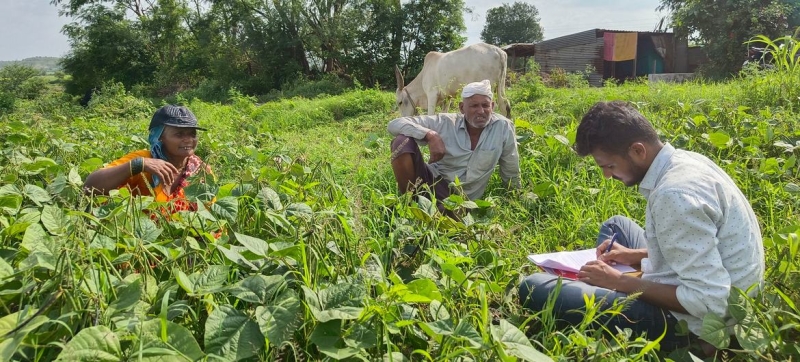
A group of young people from around the world have been recognized by the UN for their contribution to the fight against desertification, land degradation and drought. Ten ‘Heroes of the Earth’ Announced at UN Conference to Combat Desertification Climate and Environment
Ten “Heroes of the Earth” were announced Wednesday at the 16th session of the Conference of the Parties to the UN Convention to Combat Desertification in the Saudi Arabian capital. The group of young people from around the world, all under the age of 35, were recognized by the UN for their contribution to combating desertification, land degradation and drought.
At a forum in Riyadh, young environmental activists are sharing their achievements and ideas on sustainable land management in the face of growing global threats of desertification and land loss. In this article, UN News introduces readers to some of the “Heroes of the Earth.”
Rokiatou Traore, Mali
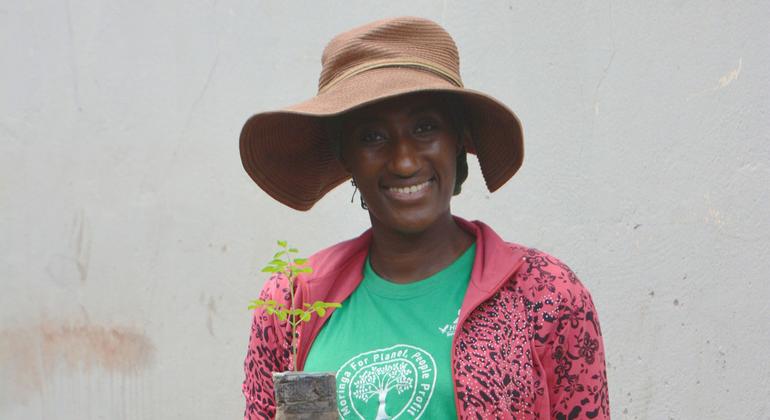
Roquiatou Traore calls herself a “green entrepreneur.” She is working on a social enterprise that makes products from the moringa tree.
About 100 women have already completed training courses in the creation of products from this tree under the guidance of Rokiatu Traore. They have learned how to make organic teas, powders, oils, soaps, spices and baby food from moringa. Their products are exported to seven countries around the world.
Seeds are life in a state of rest
In 2023, Rokiatu Traore’s enterprise grew 150,000 drought-resistant moringa tree seedlings from seeds for 5,000 local farmers.
“Seeds are life in a state of rest,” she says. “Give them water, soil, and protection, and they can solve the problem of desertification, poverty, and malnutrition forever.”
Rokiatou Traore’s plans for the future are ambitious: by 2030, she wants to create an international network of millions of women moringa producers. They will plant 10 million trees and begin to export their products en masse to national, regional, and global markets.
Takudzwa Ashley Mlambo, Zimbabwe
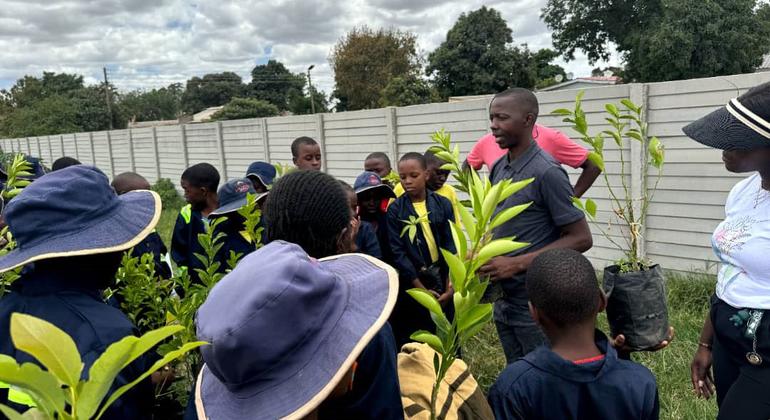
Tree planting is high on the agenda of Zimbabwe’s Takudzwa Ashley Mlambo, as the practice is crucial in efforts to restore land and reverse desertification.
The greener we become, the cooler the planet becomes
His youth-led organisation, Forestry  Citrus Research, aims to plant and monitor a total of one billion trees across Zimbabwe. A tireless innovator and advocate for innovation, he uses technologies such as artificial intelligence and satellite monitoring in his work.
Takudzwa Ashley Mlambo believes that forest restoration is an important step towards slowing climate change and keeping global temperatures below 1.5 degrees Celsius above pre-industrial levels. “The greener we become,” he says, “the cooler the planet becomes.”
Billy Crystal G. Dumalyang, Philippines
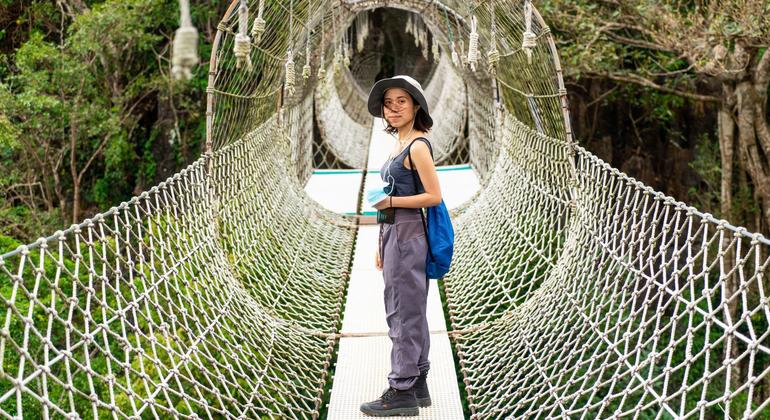
The Philippines is one of the most disaster-prone countries in the world. The recent wave of typhoons that have hit the archipelago is becoming more intense, fueled by climate change.
Deforestation in watersheds around the Philippine capital has put Manila at even greater risk of extreme weather events.
Billy Crystal G. Dumalyang and the Masungi Georeserve Foundation, which she chairs, have made an ambitious commitment to forest restoration. The initiative aims to restore about 2,700 hectares of degraded watersheds surrounding the georeserve.
The project is critical to strengthening Manila’s natural defenses against the impacts of climate change.
“Filipinos are the ones who suffer the most from drought and land degradation. It affects agriculture, livelihoods, and people’s daily lives,” says Billy Crystal. “So we need to conserve biodiversity and mitigate drought and climate change.”
Siddhesh Sakor, India
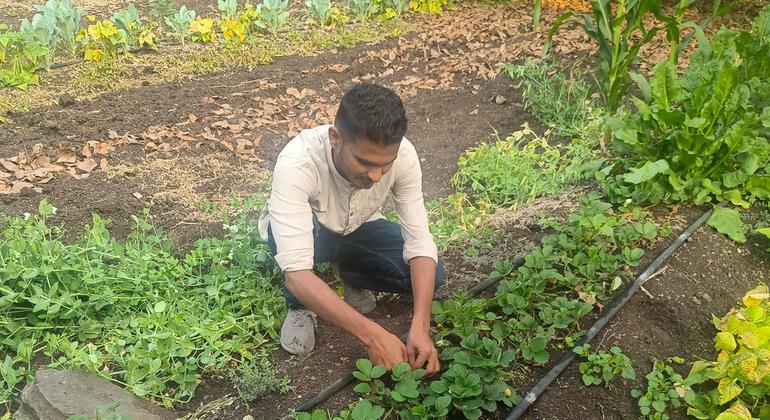
Growing up in what he calls a “marginalized farming family,” Siddhesh Sakore is a first-hand witness to the economic hardships farmers and their families face.
One of the key issues that his organisation, AGRORANGERS, is focusing on is soil degradation, which directly impacts the productivity of the land and hence the livelihood of farmers.
Soil degradation can be caused by inefficient use or poor management of land, as well as erosion, flooding, desertification and chemical pollution.
Siddhesh Sakor’s dream is to create livelihoods for farmers, especially in the drought-prone areas of Pune where he works, by shifting from chemical farming to organic agroforestry practices.
“At AGRORANGERS, we believe that combating desertification and drought starts with sustainable, community-based agricultural practices and an innovative approach to agroforestry,” says Siddhesh. – By providing farmers with the knowledge and tools to integrate trees and crops into their agricultural systems, we restore and protect the soil, caring for the land for a sustainable future.”
Astrid Peraza, Costa Rica
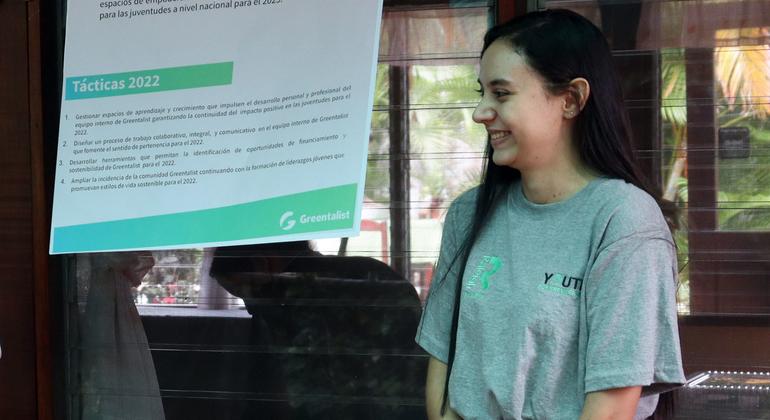
“Working alone is not an option if you want to make a difference,” says Astrid Peraza, who works as a climate educator of sorts in Costa Rica.
Astrid has developed a collaborative board game, “Saving the Penguins,” designed to teach players how to find solutions to the global problem of climate change. She is also actively involved in a project to restore mangrove forests in the Central American country.
“Joining forces is very important in the fight against desertification,” says Astrid. “So I want to reiterate that when we talk about climate change, going it alone is not an option.”
